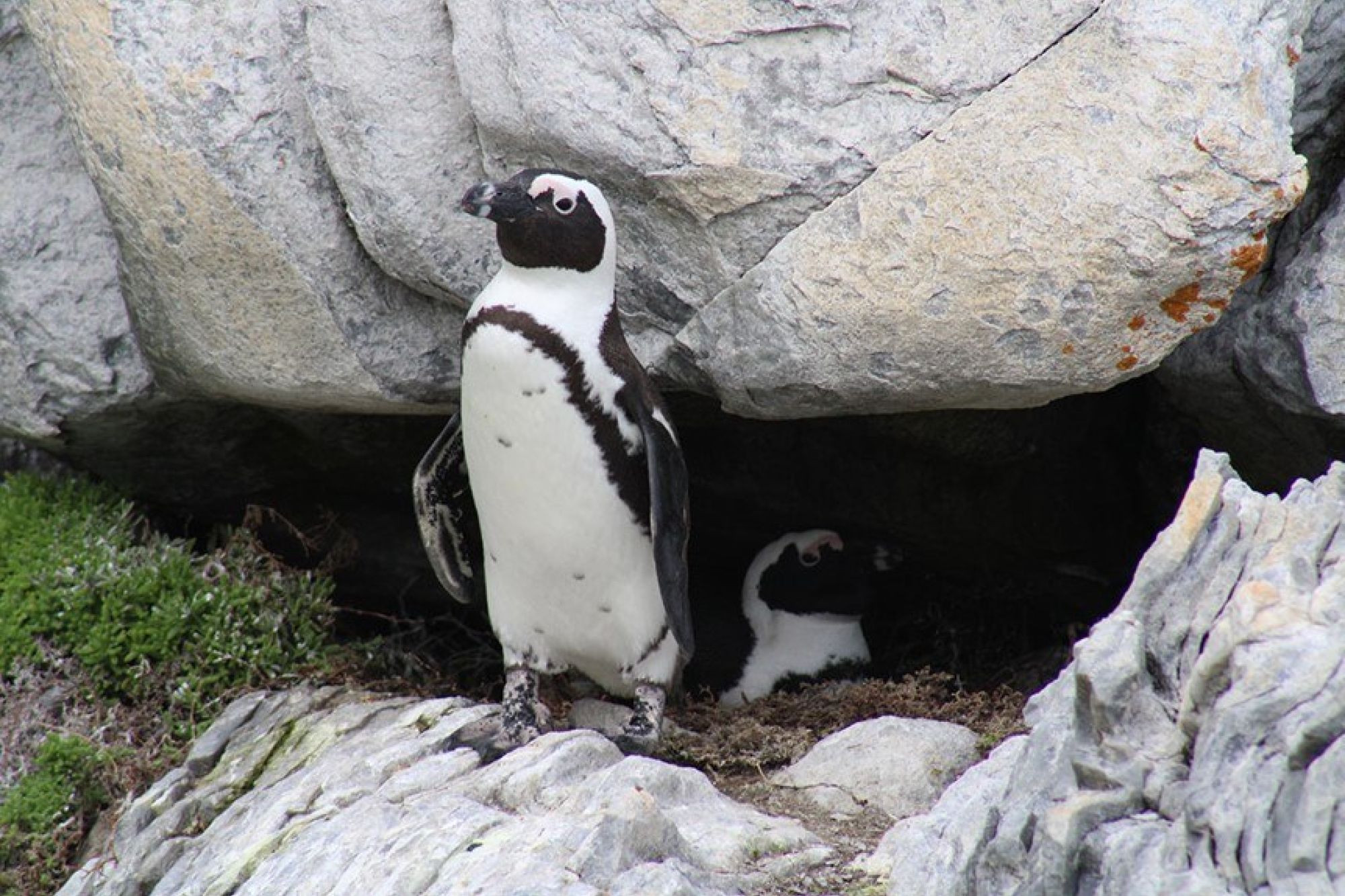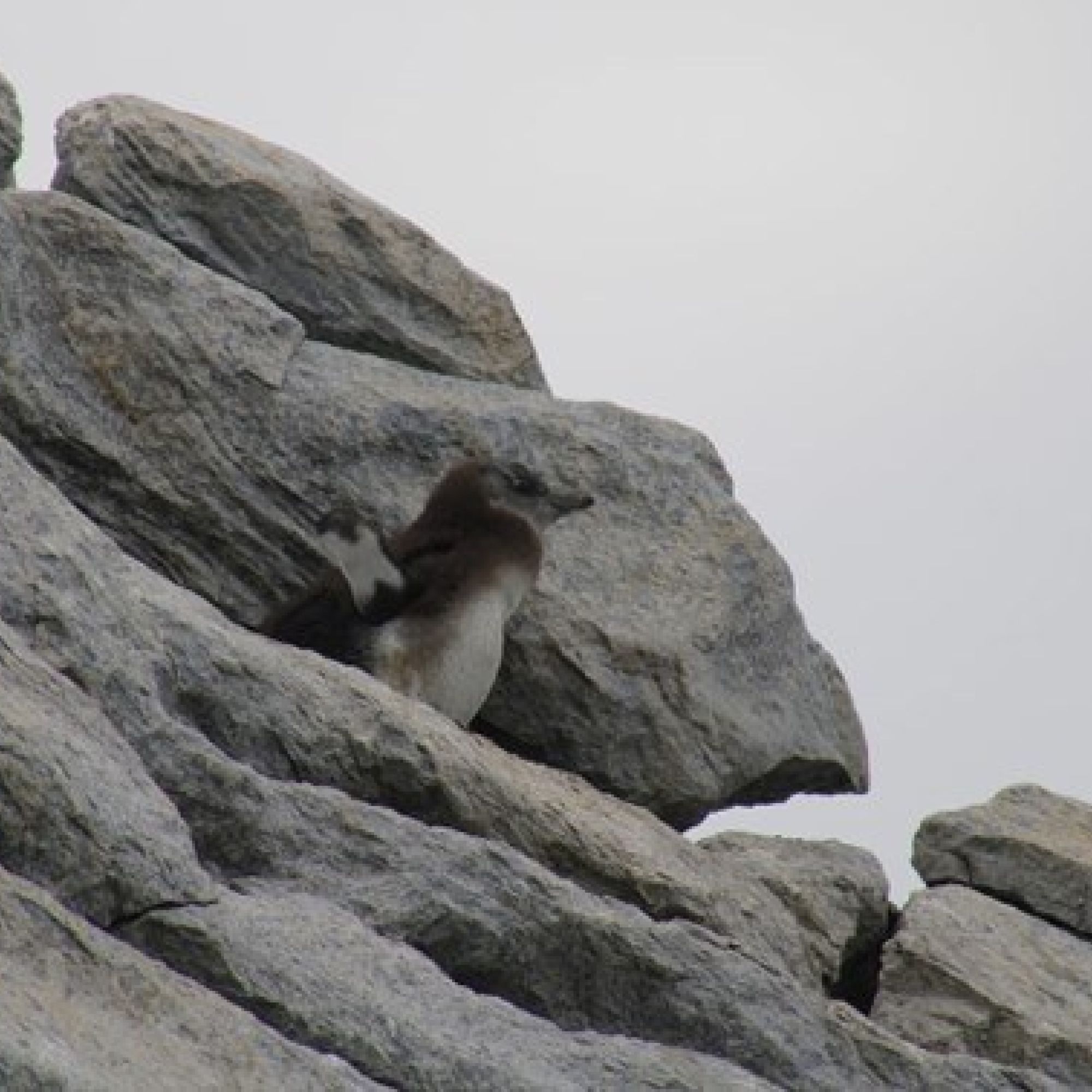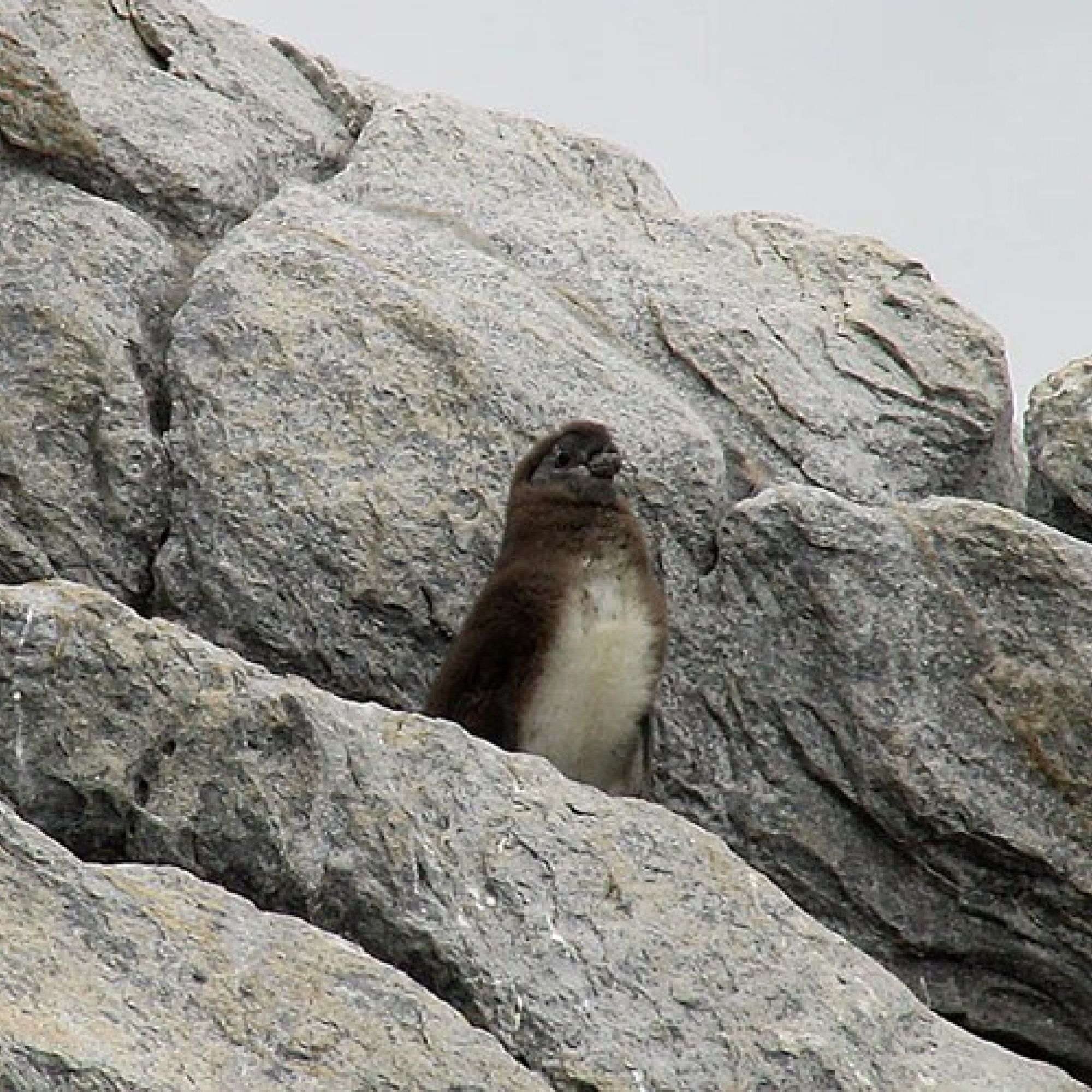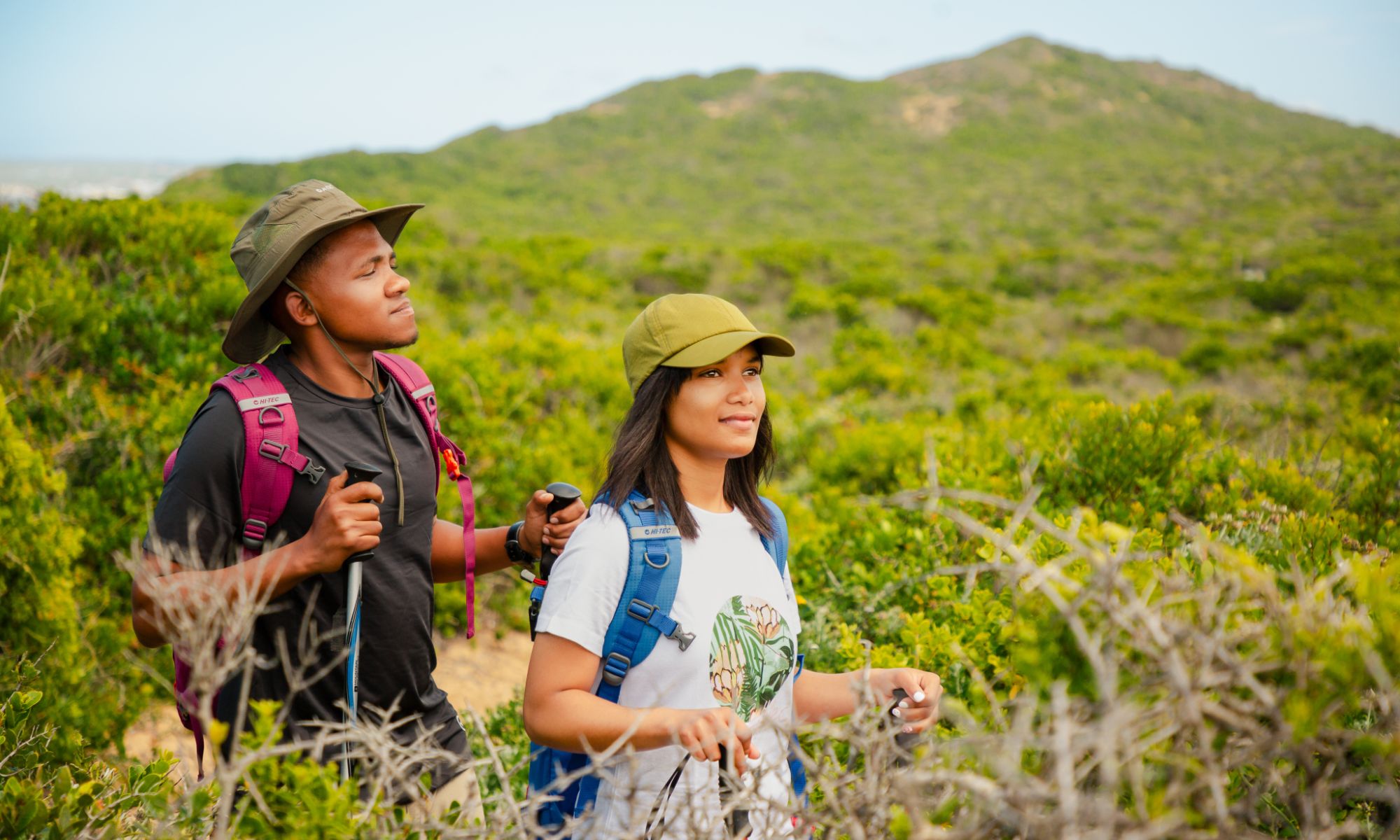
Penguins Return to De Hoop for Another Breeding Season
Last year, African Penguins successfully bred at De Hoop Nature Reserve, and this year, a pair is once again nurturing two chicks at the new colony. These chicks were spotted at the end of June, perched just outside the nest that was occupied the previous year. African Penguins display remarkable fidelity to their colonies and often return to the same nest annually to reunite with their mates. By examining the distinctive spot patterns on the parents, we have verified that this is indeed the same pair that raised chicks last year.
Between 2003 and 2008, African Penguins had been breeding at the original colony until predation by caracal led to their abandonment of the site. In an effort led by BirdLife South Africa, CapeNature, and SANCCOB, concerted work has been put into reestablishing this colony. The area has been secured with a predator-proof fence serving as its landward boundary. To create the illusion of an established colony, decoys and a speaker broadcasting penguin calls have been deployed. Additionally, juvenile penguins are released there, imprinting on the area, and ensuring they return when they are ready to breed. The first penguins returned to the colony in June 2022, and in October of the same year, the first chicks were discovered, marking the first instance of penguin breeding at this location in 15 years.
The current chicks are in the process of shedding their downy feathers, indicating an estimated age of one-and-a-half to two months. It is likely they will fledge from late July to mid-August. Encouragingly, there are three other potential nesting sites where pairs of penguins have been observed sitting regularly, raising hopes that these two chicks will soon have more companions.
We are deeply grateful for the generous support of the Isdell Family Foundation, which has made this project possible. Furthermore, we are fortunate to have a vehicle provided by Scottfin Finance to aid in our conservation efforts.

One of the other pairs of penguins that has been sitting in front of a potential nest. Photo by Christina Hagen.

The older of the two chicks stretches its wings outside the nest. Photo by Christina Hagen.

The younger chick has more down feathers, which will start to disappear as it grows and will be replaced by the characteristic blue-grey feathers of a juvenile. Photo by Christina Hagen.
Related News
How can I assist you today?
How can I assist you today?





